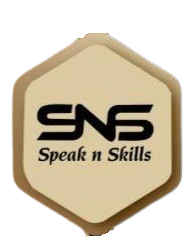“Learn the different types of nouns and how to use them correctly in sentences. This comprehensive guide covers common, proper, concrete, abstract, collective, compound, countable, and uncountable nouns. With examples and exercises, you’ll be a pro at identifying and using nouns in no time.”

what is a noun?
A noun is a word that represents a person, place, thing, or idea. Noun are often used as the subject or object of a sentence, and can also be used to name or identify something. Examples of noun include “dog,” “tree,” “book,” and “love.”
Types of nouns:
There are several types of noun, including:
1. Common noun:
These are nouns that refer to general, non-specific objects or places, such as “dog,” “tree,” “book,” and “love.”
2. Proper noun:
These are nouns that refer to specific, named objects or places, such as “George Washington,” “Eiffel Tower,” and “New York City.” Proper nouns are always capitalized.
3. Concrete noun:
These are nouns that refer to physical, tangible objects that can be perceived by the senses, such as “dog,” “tree,” “book,” and “rock.”
4. Abstract noun:
These are nouns that refer to non-physical, intangible concepts, such as “love,” “happiness,” and “intelligence.”
5. Collective noun:
These are nouns that refer to a group of people, animals, or things, such as “team,” “flock,” and “herd.”
6. Compound noun:
These are nouns that are made up of two or more words, such as “bedroom,” “toothbrush,” and “password.”
7. Countable noun:
These are nouns that can be counted, such as “dog,” “book,” and “rock.”
8. Uncountable noun:
These are nouns that cannot be counted, such as “water,” “air,” and “information.”
Examples:
- Common noun: boy, girl, country, language
- Proper noun: John, Paris, Sunday, November
- Concrete noun: pencil, car, house, apple
- Abstract noun: freedom, courage, love, patience
- Collective noun: team, herd, group, family
- Compound noun: toothbrush, notebook, bedroom, password
- Countable noun: pencil, car, apple, cat
- Uncountable noun: water, air, information, time
Vocabulary of noun

The vocabulary of noun includes a wide range of words that can be used to represent people, places, things, and ideas. Some common nouns include:
- Animals: dog, cat, bird, elephant
- Food: apple, bread, cheese, pizza
- Clothing: shirt, dress, pants, shoes
- Furniture: chair, table, couch, bed
- Natural Phenomena: ocean, mountain, cloud, storm
- Places: city, country, park, building
- People: teacher, doctor, student, artist
- Things: book, phone, car, computer
- Ideas: love, freedom, happiness, success
These are just a few examples of the many nouns that exist in the English language. The vocabulary of noun is constantly expanding as new words are created and old words take on new meanings.
How to convert Adjectives into Nouns:
There are several ways to convert adjectives into noun:
- By adding a suffix: Some common suffixes used to create nouns from adjectives include -ness (happiness, kindness), -ity (possibility, ability), -ment (entertainment, development)
- By using a particle: The particle “the” can be added before an adjective to create a noun, such as “the rich” or “the poor.”
- Using a gerund: A gerund is a form of a verb that functions as a noun, by adding -ing to the adjective (such as “the aging population”).
- Using “one” or “ones”: Adding “one” or “ones” after an adjective can create a noun, such as “the smart one” or “the new ones.”
- Using “of”: Adding “of” after an adjective, followed by a noun, can create a noun phrase, such as “lovers of literature” or “children of immigrants”.
Examples:
- Happy – happiness
- Kind – kindness
- Able – ability
- Interesting – entertainment
- Rich – the rich
- Smart – the smart one
- Old – aging population
- New – new ones
Please note: There are some adjectives that can not be converted into noun, or the noun form can have a different meaning than the adjective form. It’s important to check the dictionary to make sure that the noun form of the adjective is appropriate in the context you are using it.
Here is a list of vocabulary adjectives and their corresponding nouns:
- Able: ability
- Angry: anger
- Brave: bravery
- Calm: calmness
- Clever: cleverness
- Cruel: cruelty
- Dangerous: danger
- Dear: dearness
- Delicate: delicacy
- Dull: dullness
- Elder: elderliness
- Empty: emptiness
- Envious: envy
- Faithful: faithfulness
- Famous: fame
- Fierce: fierceness
- Fine: fineness
- Friendly: friendliness
- Funny: funniness
- Generous: generosity
- Gloomy: gloominess
- Gracious: graciousness
- Great: greatness
- Harsh: harshness
- Honest: honesty
- Innocent: innocence
- Jealous: jealousy
- Kind: kindness
- Large: largeness
- Lazy: laziness
- Light: lightness
- Lovely: loveliness
- Mad: madness
- Modern: modernity
- Noble: nobility
- Old: oldness
- Patient: patience
- Powerful: power
- Proud: pride
- Pure: purity
- Quiet: quietness
- Rich: richness
- Right: righteousness
- Sad: sadness
- Sharp: sharpness
- Short: shortness
- Simple: simplicity
- Small: smallness
- Strong: strength
- Sweet: sweetness
- Tender: tenderness
- Tight: tightness
- Tiny: tininess
- True: truth
- Young: youth
Please note that this is not an exhaustive list, there are many more adjectives that can be converted into nouns, and there may be variations in the spelling or usage of some of the nouns listed above.
VISIT US ON OUR FACEBOOK PAGE: https://www.facebook.com/speaknskills/
if you have any queries or would like to learn more about our services, please feel free to contact us on +91-7982757636 https://speaknskills.com/
Practice grammar: https://speaknskills.com/simple-present-tense-affirmative-worksheet/

